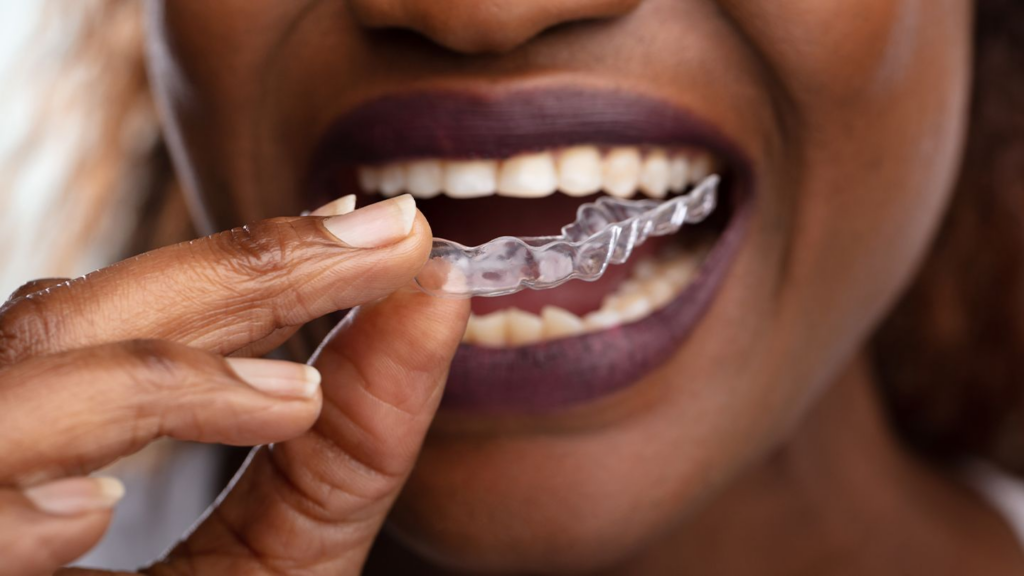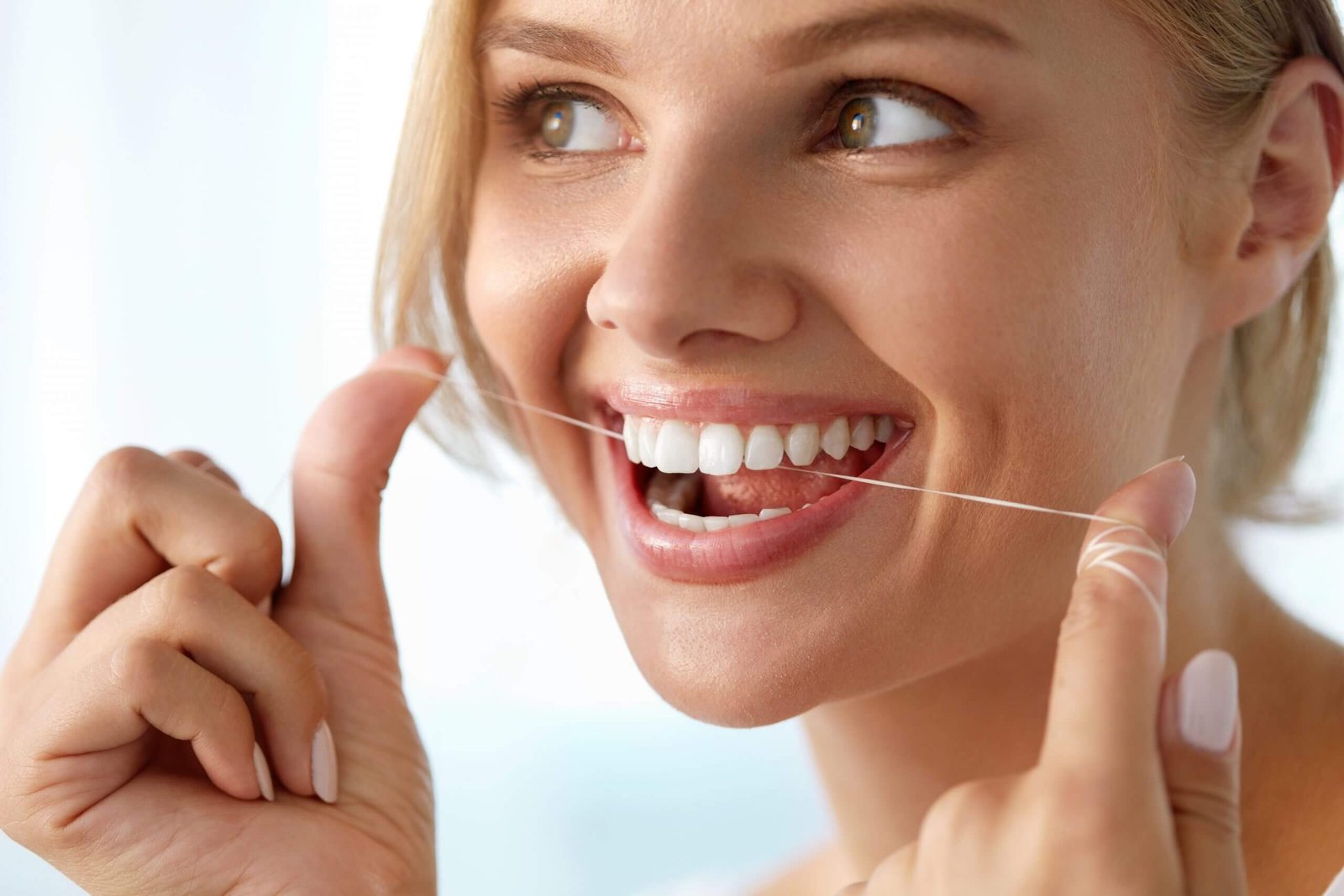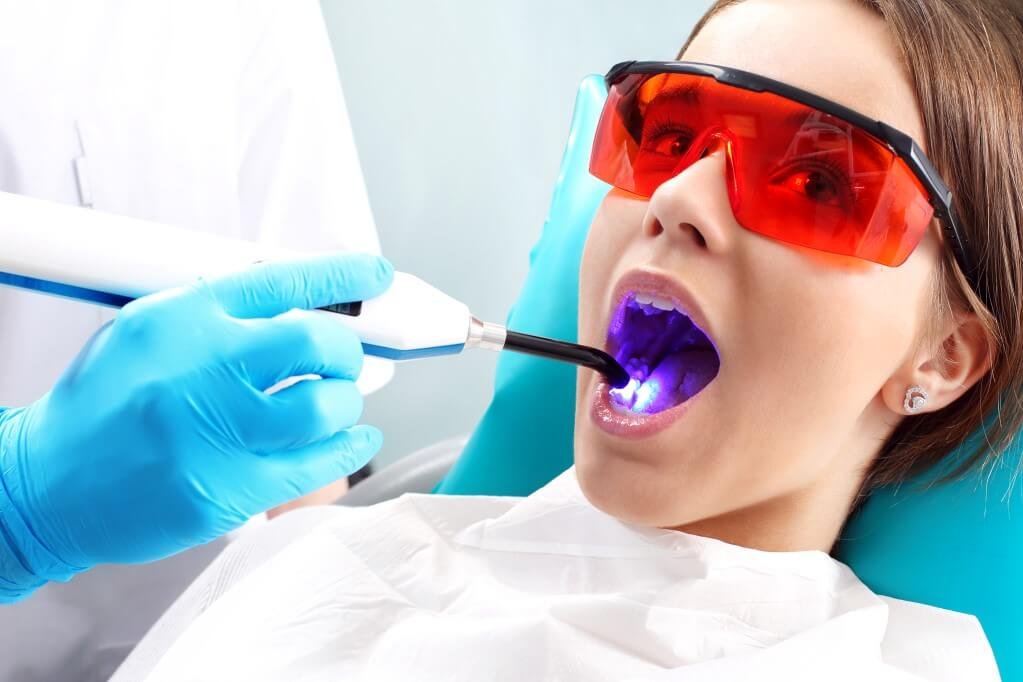Proper oral hygiene practices are essential for maintaining healthy gums. The gum tissues play a critical role in supporting the teeth, and their health is crucial for overall oral health. Poor oral hygiene can lead to various gum diseases such as gingivitis and periodontitis, which can cause tooth loss if left untreated. Therefore, it is imperative to adopt proper oral hygiene practices that support healthy gums.
Experience the full spectrum of oral wellness through the Features and Benefits of Gum Line Healing Solutions, complemented by diligent adherence to proper oral hygiene practices. Achieve stronger gums, reduced inflammation, and a radiant smile by embracing this holistic approach.
In this article, we will discuss various oral hygiene practices promote healthy gums. We will cover brushing techniques, flossing methods, mouthwash usage, dietary recommendations, smoking cessation advice, regular dental check-ups, prompt treatment of gum diseases, and ways to maintain good overall health. By following these guidelines regularly and consistently, you can promote optimal gum health and prevent potential dental problems down the road.
Brush Your Teeth Properly
The correct technique for brushing one’s teeth is integral to maintaining optimal dental health. Proper brushing techniques involve choosing the right toothbrush and following a specific pattern to ensure that every surface of each tooth is cleaned. Experts recommend using a soft-bristled brush with a small head that can reach all areas of the mouth easily.
To begin, place the toothbrush at a 45-degree angle against the gum line and apply gentle pressure as you move in circular motions. Brush the outer surfaces, inner surfaces, and chewing surfaces of all teeth, paying special attention to hard-to-reach areas like molars. Be sure to brush for at least two minutes twice a day, taking care not to brush too vigorously or use excessive force as this can damage your gums and erode tooth enamel.

Choosing the right toothbrush is also an important factor in proper oral hygiene practices. Electric toothbrushes are highly recommended by dentists due to their effectiveness in removing plaque build-up. However, manual brushes can be just as effective if used correctly. It’s important to change your toothbrush every three months or sooner if bristles become frayed or worn down.
To ensure healthy gums and teeth, it’s essential to floss daily in addition to regular brushing. Flossing removes plaque and food particles from between teeth where brushes cannot reach, preventing gum disease and cavities. By incorporating proper brushing techniques into your daily routine and choosing the right tools for the job, you can maintain optimal dental health for years to come without sacrificing your beautiful smile.
Floss Daily
Daily flossing is an essential part of maintaining optimal gum health and preventing potential oral diseases. Dental floss techniques involve sliding a thin, nylon string between the teeth and gently scraping both sides of each tooth to remove plaque and food particles. Flossing should be done at least once a day, preferably before bed, for effective results.
The benefits of flossing cannot be overstated. Regular flossing helps prevent gum disease by removing plaque buildup that can lead to inflammation and infection. It also removes trapped food particles that can cause bad breath and tooth decay. Furthermore, studies have shown that daily flossing can reduce the risk of heart disease by reducing inflammation in the body.

Alternatives to traditional flossing methods include water picks, interdental brushes, and pre-threaded flossers. Water picks use high-pressure streams of water to clean between teeth while interdental brushes are small brushes designed to fit between teeth. Pre-threaded flossers are disposable plastic tools with a piece of dental floss stretched across them for easy use. However, these alternatives are not as effective as traditional dental floss techniques in removing plaque from tight spaces between teeth.
Frequent brushing alone cannot guarantee optimal oral hygiene; proper daily flossing is equally important in maintaining healthy gums and preventing potential oral diseases. After mastering the art of regular brushing, it’s time to move on to incorporating daily flossing into your routine.
Use Mouthwash
Incorporating mouthwash into a daily oral care routine can provide additional benefits in maintaining optimal overall dental health. Mouthwashes contain active ingredients that help kill bacteria that cause bad breath and gum disease, and prevent the buildup of plaque on teeth. Additionally, some mouthwashes have fluoride, which strengthens enamel and helps prevent cavities.
Choosing the best mouthwash brand can be overwhelming as there are numerous products available in the market. It is essential to select a mouthwash that fits your specific needs and preferences. For instance, if you have sensitive gums or teeth, using an alcohol-free mouthwash may be more comfortable for you. Some popular brands include Listerine, Colgate, Crest, ACT, and Biotene.

Incorporating mouthwash into your daily oral care routine has several benefits for maintaining healthy gums. It helps kill bacteria that cause bad breath and gum disease while also preventing plaque buildup on teeth. When selecting a mouthwash brand to use regularly, it is crucial to consider factors such as personal preferences and needs.
Limit Sugary and Acidic Foods
Limiting the consumption of sugary and acidic foods can contribute to maintaining optimal overall dental health by reducing the risk of developing cavities and erosion of tooth enamel. A healthy diet is essential for keeping our teeth and gums strong, and it also helps promote a balanced oral pH balance. Sugary foods such as candies, sodas, cakes and pastries feed bacteria in our mouth that produce acid, which attacks our teeth’s protective layer (enamel), leading to decay. On the other hand, acidic foods such as citrus fruits, tomatoes, pickles and vinegar weaken the enamel over time, making it more vulnerable to decay.
To maintain healthy gums, individuals should limit their intake of sugary and acidic foods. This means avoiding snacks loaded with sugar or consuming them in moderation while ensuring a well-balanced diet rich in nutrients like calcium found in dairy products or leafy greens like spinach. Additionally, drinking plenty of water after meals helps neutralize acids produced by plaque bacteria that cause tooth decay.
It’s essential to understand that a healthy diet plays an integral role in maintaining good oral hygiene practices for healthy gums. By limiting sugary and acidic foods from our diets, we lower our risk of developing cavities or experiencing erosion of tooth enamel.

Quit Smoking
Cigarette smoking cessation is critical in maintaining optimal dental health, as tobacco use can have detrimental effects on oral tissues and increase the risk of developing various dental conditions. Smoking can cause gum disease, tooth decay, bad breath, and even mouth cancer. Additionally, smoking weakens the immune system’s ability to fight off infections and delays healing after dental procedures. Therefore, quitting smoking is a vital step towards achieving healthy gums.
There are numerous ways to quit smoking that people can try. Nicotine patches or gum can help curb cravings while prescription medications may assist with withdrawal symptoms. Support groups and counseling services are also available for those who need more emotional support during this journey. The benefits of quitting smoking extend beyond just improved oral health; it reduces the risk of heart disease, stroke, lung cancer, and many other chronic illnesses.
Incorporating healthier habits such as quitting smoking should be prioritized for those looking to improve their overall well-being. However, visiting your dentist regularly is also important in maintaining good oral hygiene practices for healthy gums. Regular cleanings and check-ups can detect any potential issues early on before they become more severe problems that require further attention from a dentist or specialist. With proper care and attention to one’s oral health needs combined with lifestyle changes like quitting smoking, individuals will see significant improvements in their overall health outcomes over time.

Visit Your Dentist Regularly
Regular dental check-ups are crucial for maintaining optimal oral health and detecting any potential issues early on. It is recommended that individuals visit their dentist at least twice a year, or more frequently if they have existing gum disease or other oral health concerns. During these visits, the dentist will conduct a thorough examination of the teeth, gums, and mouth to ensure that they are healthy and free from any signs of decay or infection.
Importance of regular dental checkups cannot be overstated as it allows for preventive care. By catching potential problems early on, such as cavities or gingivitis, patients can avoid more extensive procedures in the future. Additionally, regular cleanings can remove plaque buildup and prevent the development of gum disease. Gum disease can cause significant damage to not only the teeth but also to surrounding tissues and bone structure.
It is essential to prioritize regular dental check-ups in order to maintain healthy gums and overall oral hygiene. The benefits of preventive care through routine exams include avoiding costly treatments later on down the line, identifying potential issues before they become severe, and receiving professional guidance regarding proper oral hygiene techniques. By taking proactive steps towards maintaining good oral health through these visits with your dentist, you can help prevent gum diseases promptly without ever needing treatment.

Treat Gum Diseases Promptly
Gum diseases are a common oral health problem that affects many people worldwide. The symptoms of gum diseases include bleeding gums, bad breath, and swollen or tender gums. If left untreated, gum diseases can lead to tooth loss and other serious health complications. Fortunately, there are various treatment options available for gum diseases, including professional cleaning, medication, and surgery. It is important to seek prompt treatment for gum diseases to prevent further damage to your oral health.
https://gumlinehealer.com/non-surgical-techniques-for-healing-gums/
Symptoms of Gum Diseases
The presence of inflammation, bleeding, and pain in the oral cavity are common indicators of gum diseases. Gingivitis is a mild form of gum disease that causes redness and swelling of the gums. It can also cause bleeding during brushing or flossing. If left untreated, gingivitis can progress into periodontitis, which is a more severe form of gum disease. Periodontitis causes deeper pockets between teeth and gums, leading to bone loss and tooth loss.
Apart from bleeding gums and pain in the mouth, other symptoms associated with gum diseases include bad breath, loose teeth, receding gums, and changes in bite alignment. If you experience any signs or symptoms of gum disease, it is best to visit your dentist for an evaluation. Early detection and prevention tips such as regular brushing, flossing, using mouthwash solutions at home remedies can help avoid serious complications like periodontitis.
Treatment Options for Gum Diseases
Various methods are available for treating gum diseases that can provide relief from inflammation, pain, and bleeding in the oral cavity while reducing the risk of severe complications like tooth loss. The treatment options depend on the severity of the disease. For mild cases of gum disease, proper oral hygiene practices such as brushing twice a day, flossing daily, and regular dental cleanings may be sufficient to control it. However, if gum disease progresses to a moderate or advanced stage, additional treatments may be necessary.
One option is scaling and root planing (SRP), which involves removing tartar and plaque buildup below the gum line to prevent further damage to the gums and teeth. Another method is flap surgery, which involves lifting up the gums to remove tartar deposits and smooth out rough spots on the roots of teeth. Antibiotics can also be prescribed to reduce bacterial infections that cause gum disease. Ultimately, prevention is key in avoiding these treatment options altogether by maintaining good overall health through proper oral hygiene practices and regular dental check-ups. Maintaining good overall health involves more than just good oral hygiene practices; it includes a healthy diet rich in vitamins and minerals that support strong teeth and gums.
Maintain Good Overall Health
Maintaining good overall health is critical for healthy gums and teeth. Regular exercise helps to reduce inflammation throughout the body, including in the gums. A balanced diet rich in vitamins and minerals can also support gum health by reducing the risk of nutrient deficiencies that may contribute to gum disease. Additionally, managing stress levels, getting enough sleep, staying hydrated, and avoiding teeth grinding can all help to promote optimal oral health.
Exercise Regularly
Regular exercise has been found to play a significant role in maintaining optimal gum health. Engaging in physical activity promotes good blood circulation, which is vital for the delivery of essential nutrients and the removal of waste products from the gums. Additionally, regular cardio workouts have been linked to lower levels of inflammation throughout the body, including the mouth.
Incorporating stretching exercises into your routine can also contribute to healthy gums by reducing tension and stress on the jaw muscles. This can help alleviate symptoms associated with temporomandibular joint disorders (TMJ), such as headaches, facial pain, and clicking or popping sounds when opening or closing your mouth. By prioritizing physical activity and incorporating both cardio and stretching exercises into your routine, you are taking a crucial step towards maintaining healthy gums and overall oral health.
Maintaining proper oral hygiene practices is not limited to just exercising regularly. Eating a balanced diet that provides essential vitamins and minerals is another crucial aspect of keeping your gums healthy.
Eat a Balanced Diet
A balanced diet that provides essential nutrients is fundamental in promoting overall oral health. Healthy eating habits not only benefit our physical well-being, but also contribute to the prevention of periodontal diseases. A diet rich in fruits, vegetables, whole grains, lean proteins and low-fat dairy products can strengthen the immune system and reduce inflammation in the body, which ultimately leads to healthy gums.
A balanced lifestyle that includes proper nutrition can provide numerous benefits beyond just oral health. It can improve mental health by reducing stress levels and increasing energy levels throughout the day. Therefore, incorporating healthy food choices into your daily routine is a crucial step towards achieving overall wellness. In addition to healthy eating habits, managing stress levels is equally important for maintaining good oral hygiene practices.

Manage Stress Levels
The impact of stress on our physical and mental health is well documented, and managing stress levels has become increasingly important in maintaining overall wellness, including the promotion of healthy teeth and gums. Stress can cause a variety of oral health problems such as gum disease, mouth sores, dry mouth, and teeth grinding. When we experience stress, our body releases hormones such as cortisol that increase inflammation throughout the body. This inflammation can lead to gum disease or exacerbate existing gum disease.
To manage stress levels, stress reducing activities such as exercise or mindfulness techniques like meditation can be helpful. Exercise releases endorphins which are natural mood enhancers that help reduce stress levels. Mindfulness techniques like meditation or deep breathing exercises have also been shown to lower cortisol levels in the body which helps reduce inflammation throughout the body including the gums. Incorporating these practices into daily routines can improve overall wellness and promote healthy gums.
Reducing stress levels is just one aspect of maintaining good oral hygiene practices for healthy gums. Another important step is to make sure you get enough sleep every night to allow your body time to repair itself while you rest.

Get Enough Sleep
Sufficient rest is imperative for facilitating the body’s natural reparative processes, and thus ensuring overall wellness, as emphasized in the current section. Sleep quality and duration are two important factors that affect gum health. Studies have shown that poor sleep quality and not getting enough sleep can lead to an increased risk of gum disease. During sleep, the body repairs damaged tissues and produces cytokines, a type of protein that helps fight infection and inflammation. When someone does not get enough sleep or experiences poor sleep quality, their immune system may become compromised, making it more difficult for them to fight off infections such as gum disease.
Lack of sleep can also contribute to stress levels which we discussed earlier as a factor affecting gum health. To improve one’s overall oral hygiene practices and reduce the risk of developing gum disease, it is essential to prioritize healthy sleeping habits such as maintaining a consistent bedtime routine and aiming for at least 7-8 hours of uninterrupted sleep each night. By doing so, individuals can ensure that their bodies are given ample opportunity to repair any damage sustained during daily activities while also reducing their risk of developing gingivitis or periodontitis.
Stay Hydrated
Maintaining adequate hydration levels is a crucial aspect of promoting overall bodily health and reducing the likelihood of developing gum disease. Dehydration can lead to dry mouth, which creates an ideal environment for bacteria to thrive in the oral cavity. When there is a lack of saliva, food particles and plaque accumulate more easily on teeth and gums, increasing the risk of tooth decay and gum disease. Furthermore, dehydration can cause soft tissue damage, leading to inflamed or bleeding gums.
Importance of hydration cannot be overstated when it comes to maintaining healthy gums. Drinking enough water throughout the day can help prevent dehydration and promote optimal salivation which helps keep your gums moist and healthy. It also helps wash away food debris from your teeth after eating which keeps bacteria in check. Remembering to drink plenty of water every day is an easy step that you can take towards maintaining good oral hygiene.

Avoid Grinding Your Teeth
Preventing tooth grinding during sleep is a crucial component of promoting overall oral health and reducing the risk of gum disease. Teeth grinding, also known as bruxism, can cause significant damage to teeth and gums if left untreated. The pressure from grinding can lead to sensitivity, enamel erosion, and even fractures in teeth. Additionally, the constant pressure on gums caused by grinding can lead to inflammation and recession of the gum tissue.
To prevent tooth grinding, using nighttime mouth guards is highly recommended by dental professionals. Mouth guards work by cushioning the teeth and jaws from each other, minimizing the impact of grinding. They are custom-fitted for each patient’s unique mouth shape and provide a comfortable barrier between upper and lower teeth. By wearing a mouth guard at night, patients can significantly reduce their risk of developing gum disease due to bruxism. Overall, taking preventative measures such as using nighttime mouth guards is essential for maintaining healthy gums and promoting optimal oral health.

Further Entities
Frequently Asked Questions
How often should I replace my toothbrush?
Toothbrush replacement is an important aspect of maintaining proper oral hygiene. It is recommended to replace your toothbrush every three to four months or sooner if the bristles become frayed or worn out. This is because a worn-out toothbrush can harbor bacteria, which can lead to infections and gum disease. Additionally, it is crucial to brush your teeth at least twice a day for two minutes each time using fluoride toothpaste. Brushing frequency and proper toothbrush replacement are essential in preventing dental problems and keeping your gums healthy. By following these practices, you can improve your overall oral health and maintain a beautiful smile for years to come.
Can chewing gum help improve oral hygiene?
Chewing gum can indeed help improve oral hygiene, as it stimulates saliva production which helps neutralize acids and wash away food particles that may be stuck in teeth. There are different types of gum that can be beneficial for oral health, such as sugar-free gum that contains xylitol. Xylitol has been known to reduce the amount of harmful bacteria in the mouth and prevent tooth decay. However, it is important to note that chewing gum should not replace proper oral hygiene practices such as brushing twice a day and flossing regularly. While chewing gum can provide some benefits for oral health, it should be used in conjunction with other healthy habits for optimal results.
What are some natural remedies for gum disease?
Gum disease is a common condition that affects many people around the world. While there are several conventional treatments available for gum disease, some individuals prefer to use natural remedies to manage their symptoms. Two popular natural remedies for gum disease are oil pulling and herbal mouthwash. Oil pulling involves swishing a tablespoon of coconut oil in the mouth for 15-20 minutes before spitting it out. It is believed to help reduce plaque formation and improve overall oral health. Herbal mouthwash, on the other hand, contains essential oils such as peppermint or tea tree oil, which have antimicrobial properties that can help fight off harmful bacteria in the mouth. While these natural remedies may not be as effective as traditional treatments recommended by dentists, they can be used in conjunction with proper oral hygiene practices for healthier gums.
How can stress affect my oral health?
Stress can have a significant impact on oral health, particularly in terms of gum health. When an individual experiences stress, the body’s natural response is to produce cortisol, a hormone that can increase inflammation throughout the body. This inflammation can lead to gum disease and other dental problems if left unchecked. Additionally, stress can often lead to poor self-care habits such as neglecting proper oral hygiene practices or engaging in unhealthy behaviors like smoking or consuming sugary foods and drinks. Therefore, it is important for individuals to prioritize stress management techniques such as exercise, meditation, and therapy as part of their overall approach to maintaining good oral health and preventing gum disease.
Is it necessary to use a tongue scraper for good oral hygiene?
Tongue scraping is a common practice that many individuals perform as part of their daily oral hygiene routine. The benefits of tongue scraping include removing bacteria and debris from the surface of the tongue, which can contribute to bad breath and other oral health issues. However, there are alternative methods for achieving similar results, such as using a soft-bristled toothbrush or mouthwash. It is important to note that while tongue scraping may be beneficial for some individuals, it is not necessary for maintaining good oral hygiene overall. Ultimately, it is up to each individual to determine what works best for their own personal needs and preferences.
Conclusion
In conclusion, maintaining proper oral hygiene practices is essential for healthy gums. It involves brushing teeth properly, flossing daily, using mouthwash, limiting sugary and acidic foods, quitting smoking, visiting the dentist regularly, treating gum diseases promptly and maintaining good overall health. Proper brushing techniques ensure that all parts of the teeth are cleaned thoroughly to remove plaque buildup which can cause gum inflammation and disease. Flossing helps to clean in between teeth where a toothbrush cannot reach while using mouthwash assists in reducing bacteria in the mouth.



